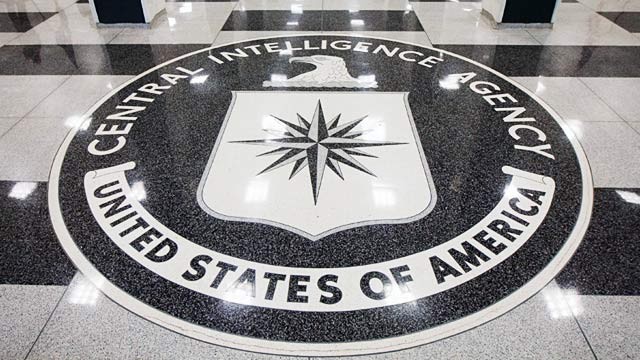
ALEXANDRIA, VIRGINIA – A former CIA officer was convicted Monday in federal court of illegally disclosing national defense information to the New York Times.
Jeffrey Alexander Sterling, 47, of O’Fallon, Missouri, was also convicted of obstructing justice, officials said.
“He violated his sworn duty to protect our nation’s secrets and he betrayed our country,” said FBI Director James Comey. “The FBI will continue to pursue these cases vigorously.”
According to evidence presented at trial, these are the facts and circumstances surrounding this case:
- Sterling was employed by the CIA from May 1993 to January 2002.
- From November 1998 through May 2000, he was assigned to a classified clandestine operational program designed to undermine the Iranian nuclear weapons program.
- He was also the operations officer assigned to handle a human asset associated with that program, a person identified at trial as Merlin.
- Sterling was reassigned in May 2000, at which time he was no longer authorized to receive or possess classified documents concerning the program or the individual.
- In connection with his employment, Sterling, who is a lawyer, signed various security, secrecy and non-disclosure agreements in which he agreed never to disclose classified information to unauthorized persons, acknowledged that classified information was the property of the CIA.
- He also acknowledged that the unauthorized disclosure of classified information could constitute a criminal offense.
- These agreements also set forth the proper procedures to follow if Sterling had concerns that the CIA had engaged in any “unlawful or improper” conduct that implicated classified information.
- These procedures permit such concerns to be addressed while still protecting the classified nature of the information.
- The media was not an authorized party to receive such classified information.
- In in retaliation for the CIA’s refusal to settle those actions on terms favorable to him, disclosed information concerning the classified operational program and the human asset to a New York Times reporter working on an unpublished article in early 2003 and a book the reporter published in January 2006.
- Sterling’s civil and administrative claims were ultimately dismissed by the court.
- Evidence demonstrated that in February and March 2003, Sterling made various telephone calls to the reporter’s residence and e-mailed a newspaper article about the weapons capabilities of a certain country that was within Sterling’s previous clandestine operational assignment.
- While the possible newspaper article containing the classified information Sterling provided was ultimately not published in 2003, evidence showed that Sterling and the reporter remained in touch from December 2003 through November 2005 via telephone and e-mail.
- In January 2006, the reporter published a book that contained classified information about the program and the human asset.
- Evidence at trial showed that Sterling was aware of a grand jury investigation into the matter by June 2006, when he was served a grand jury subpoena for documents relating to the reporter’s book.
- Nevertheless, between April and July 2006, Sterling deleted the e-mail containing the classified information he had sent from his account in an effort to obstruct the investigation.
“This is a just and appropriate outcome,” said Attorney General Eric Holder. “The defendant’s unauthorized disclosures of classified information compromised operations undertaken in defense of America’s national security. The disclosures placed lives at risk. And they constituted an egregious breach of the public trust by someone who had sworn to uphold it.”
Adding, “As this verdict proves, it is possible to fully prosecute unauthorized disclosures that inflict harm upon our national security without interfering with journalists’ ability to do their jobs. And I want to thank the investigators, prosecutors and support staff who made this outcome possible for their relentless efforts in advancing a complex case that spanned multiple years.”

